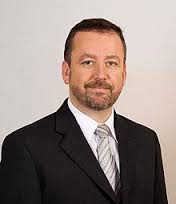Difference between revisions of "Bernd Fabritius"
| (2 intermediate revisions by one other user not shown) | |||
| Line 1: | Line 1: | ||
| − | [[File: | + | [[File:Download (1).jpg|400px|thumbnail|left|Bernd Fabritius]] |
Dr. Bernd Fabritius was born on May 14, 1965 in Agnetheln, Romania (Agnita in Romanian language). | Dr. Bernd Fabritius was born on May 14, 1965 in Agnetheln, Romania (Agnita in Romanian language). | ||
| Line 17: | Line 17: | ||
[http://www.bundestag.de/bundestag/abgeordnete18/biografien/F/fabritius_bernd/258328 Bernd Fabritius Page ] | [http://www.bundestag.de/bundestag/abgeordnete18/biografien/F/fabritius_bernd/258328 Bernd Fabritius Page ] | ||
| + | |||
| + | |||
| + | [[Category: German Parliamentarians - Bundestag]] | ||
Latest revision as of 10:25, 8 June 2015
Dr. Bernd Fabritius was born on May 14, 1965 in Agnetheln, Romania (Agnita in Romanian language).
Political Career[edit]
Fabritius is vice-president of the Federation of Expellees (BdV - Bund der Vertriebenen), federal chair of the Association of Transylvanian Saxonians around the Globe (Föderation der Siebenbürger Sachsen in aller Welt), vice-president of the Romania-Bavaria Foundation for Social Assistance (Stiftung Bavaria-Romania für Soziale Assistenz), vice chair of the Union of Expellees and Ethnic German Immigrants (UdV - Union der Vertriebenen und Aussiedler), and holder of the Europe Medal from the Free State of Bavaria. He is a member of the CSU since 2003.
Education[edit]
Fabritius graduated in Social Administration, political science, and law. Worked as a lawyer since 1997.
Extra Information[edit]
As an ethnic German born in Transylvania, Romania, and member of various organizations representing the Transylvanian German minority, Fabritius is an active participant of cultural diplomacy. On his website, Fabritius points out that his entry into politics is largely motivated by his felt need to safeguard the Transylvanian German cultural heritage. According to Fabritius, Transylvanian Germans and other groups of German Aussiedler have the ability and expertise to build bridges between minorities in Germany as well as between the member states of the European Union. In his words, Aussiedler may act as “connecting links between tradition and future.”
